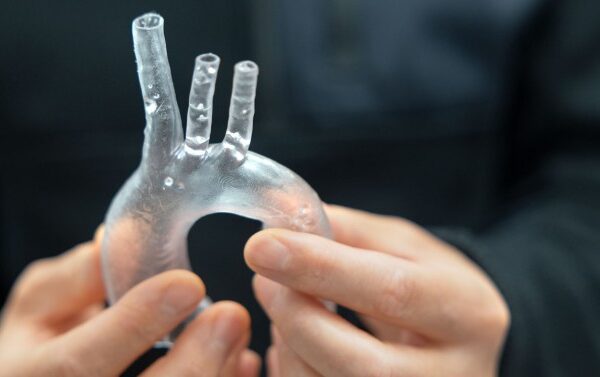The “From Rats to Reagents” webinar, hosted by the Centre for Technology Licensing at Weill Cornell Medicine (CTL@WCM), delved into the complexities of commercializing research tools developed in academia. Experts from diverse fields discussed intellectual property’s role, the intricacies of quality control, and the transition from academic research to commercial ventures.
Iris Bica, a Business Development and Licensing Associate at CTL@WCM, introduces a panel of distinguished speakers.
She stresses that, “Research tools, whether it be cell lines, mouse models, reagents, probes, or organoids are regularly generated in the course of research. While many of these are primarily used for academic purposes, some of these have the potential to be commercialized for use by other researchers, companies, or even spun into new ventures or start-ups to offer these tools as a service.” Iris introduces the panel as, “A great opportunity to talk about some of the ways which we can commercialize these tangible materials as well as some of the pitfalls and challenges to watch out for in order to fully leverage these opportunities.”
The panel includes Karen Wu, President and Co-founder of Lucerna, Inc., Jamie Hoberg, Head of External Invasion Licensing at Millipore Sigma, Chuck Na, Manager of Innovation at ATCC, and Peter Wells, Contracts & Licensing Manager at The Jackson Laboratory.
Together, they explore the nuances of transitioning academic research tools into commercial successes, addressing key considerations in intellectual property, quality assurance, and market engagement.
Karen Wu, representing Lucerna, shares her journey from academic research to founding a startup. She discusses the development of the Spinach technology at Weill Cornell and how it led to the creation of Lucerna, which specializes in RNA imaging products and assay development.
Jamie Hoberg from Millipore Sigma speaks on evaluating the commercial potential of academic materials. He highlights the importance of publications in assessing whether to license a research tool and how his company works with academic institutions to identify new technology opportunities.
Chuck Na from ATCC delves into the complexities of ownership and freedom to operate in tech transfer. He discusses how ATCC, a global biorepository, navigates the intellectual property landscape to make research tools broadly available while addressing the challenges of licensing and distribution. In addition, Chuck highlighted the positive ripple effect of sharing research tools and knowledge, emphasizing, “So I really do think that the tangible benefit of royalties also results in the intangible benefit of knowledge spillover. Your materials can then go down into future publications, future discoveries that are going to benefit the world.”
Peter Wells from The Jackson Laboratory addresses the commercial use of mouse models and the licensing processes involved. He discusses the operational and contractual aspects of managing a vast repository of mouse models and their implications for commercial licensing.
The webinar stresses the importance of a cooperative strategy involving intellectual property, quality control, and the partnership between academic institutions and commercial entities. This collaborative effort is essential to successfully navigate the complex journey from research innovation to a viable commercial product.
For anyone looking to bridge the gap between academic research and the commercial market, “From Rats to Reagents” is an indispensable resource. This Weill Cornell Medicine webinar provides a treasure trove of insights on intellectual property, quality control, and collaboration in the commercialization process. The expert panelists illuminate the path from lab bench to market success. To gain knowledge from leading specialists in the field and to be inspired by their innovative journeys, access the webinar recording and embrace the opportunity to transform research into impact.
Watch the complete discussion here
Author: Catherine Yingzi Lin






